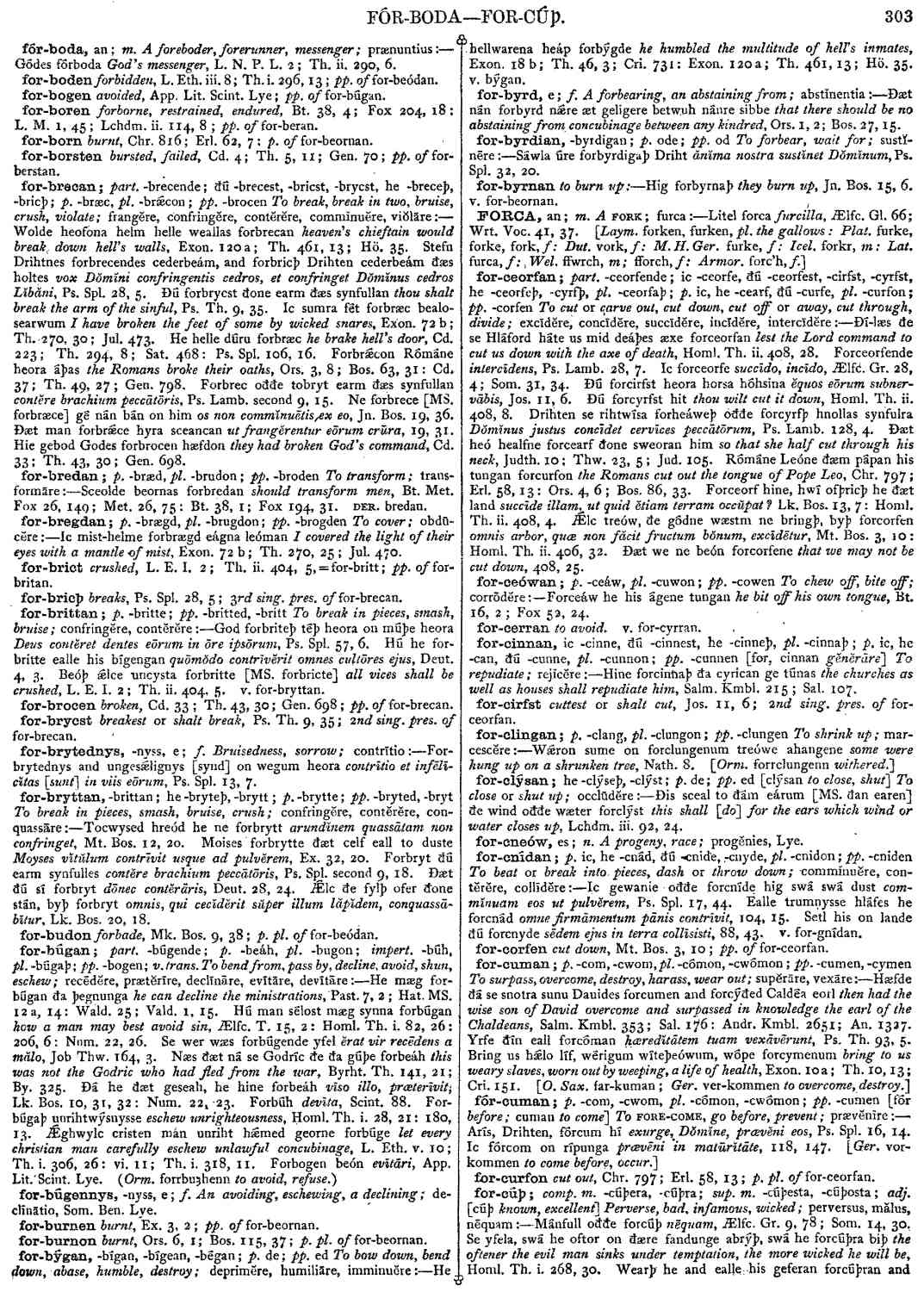for-búgan
- verb [ strong ]
-
He mæg forbúgan ða þegnunga
he can decline the ministrations,
- Past. 7, 2 ;
- Hat. MS. 12 a. 14: Wald. 25 ;
- Vald. 1, 15.
-
Hú man sélost mæg synna forbúgan
how a man may best avoid sin,
- Ælfc. T. 15, 2: Homl. Th. i. 82, 26: 206, 6: Num. 22, 26.
-
Se wer wæs forbúgende yfel
ĕ rat vir recēdens a mălo,
- Job Thw. 164, 3.
-
Næs ðæt ná se Godríc ðe ða gúþe forbeáh
this was not the Godric who had fled from the war,
- Byrht. Th. 141, 21; By. 325.
-
Ða he ðæt geseah, he hine forbeáh
vīso illo, præterīvit;
- Lk. Bos. 10, 31, 32: Num. 22, 23.
-
Forbúh
devīta,
- Scint. 88.
-
Forbúgaþ unrihtwýsnysse
eschew unrighteousness.
- Homl. Th. i. 28, 21: 180, 13.
-
Ǽghwylc cristen man unriht hǽmed georne forbúge
let every christian man carefully eschew unlawful concubinage,
- L. Eth. v. 10 ;
- Th. i. 306, 26: vi. 11 ;
- Th. i. 318, 11.
-
Forbogen beón
evītāri,
- App. Lit. Scint. Lye. (Orm. forrbuȝhenn to avoid, refuse.)
Bosworth, Joseph. “for-búgan.” In An Anglo-Saxon Dictionary Online, edited by Thomas Northcote Toller, Christ Sean, and Ondřej Tichy. Prague: Faculty of Arts, Charles University, 2014. https://bosworthtoller.com/11231.
Checked: 1